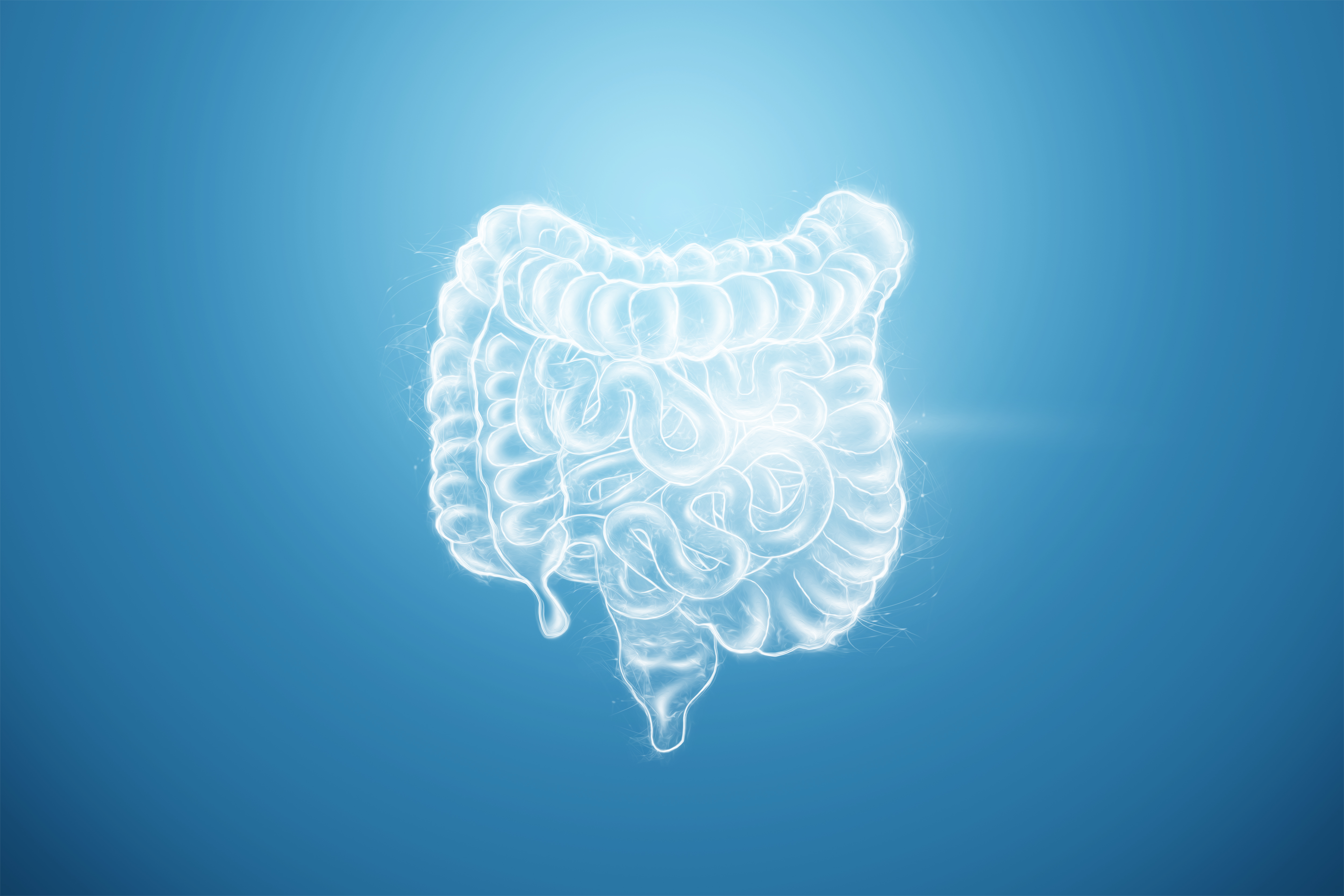It is one of those days again. You’ve felt a persistent abdominal pain the entire morning, and you head to the bathroom again
In between the pangs of pain and straining, you begin to get worried. You take out your smartphone and start to search for the symptoms of your predicament. Reading through some of the results on the front page, it is easy to get overwhelmed, confused, or worried. Is this occasional constipation normal?
According to a recent study published in Gastroenterology, more than one in four Canadians experience occasional constipation[1]. Fortunately, it is also rare that symptoms of constipation are signs of serious conditions[2].
What is constipation?
Constipation is the most frequent gastrointestinal complaint that patients bring up to their physician[3]. It occurs when your stool becomes too dry or too hard to pass easily. It causes you to strain to defecate, and pass these small, hard stools. Even after you pass these stools, you might feel like your rectum hasn’t completely emptied.
Other signs and symptoms of constipation include:
- Abdominal pain
- Difficult and painful bowel movements
- Lower frequency of bowel movements (compared to your normal)
- Bloating
Causes of occasional constipation
How often do you poop? For many of us, our gastrointestinal tract follows a regular schedule of bowel movements. It could lead to as many as 3 bowel movements a day or as few as 3 bowel movements in a week[4]. If this delicate schedule is disrupted, it can lead to gastrointestinal symptoms and constipation.
There are many factors that can contribute to gastrointestinal disruptions.
- Changes in diet: Ever hear the saying that you are what you eat? If you’re constipated, you might be able to link these symptoms to changes in your diet. Eating very sweet or very salty foods is positively associated with symptoms of constipation[5]. Alternatively, you may have switched to a new diet or even intermittent fasting and may not be getting enough fibre.
- Sleepless nights: There is a strong association between insomnia and constipation[6]. If your sleep schedule is disturbed, it also affects the rhythm of the gastrointestinal tract.
- Lack of water: If you aren’t drinking any water, it becomes easier for waste to get stuck in the colon and become drier and harder. Depriving yourself of water may make it more likely you’ll have trouble passing your stool.
Dr. Sitash Rao, a gastroenterologist and researcher at Augusta University, told the Canadian Digestive Health Foundation that constipation can also occur with other life changes including new working schedule, stress, new medications, emotional problems and even the stress of a new job.
Constipation becomes more common with age
Almost one in three adults over the age of 60 experience occasional constipation[2]. Constipation can also be a symptom of other age-related disorders that affect the nervous system or other parts of the body, including Parkinson’s disease and diabetes mellitus[2].
When should I see a doctor?
According to ROME IV criteria[7], functional constipation can be diagnosed if two or more of the following symptoms occur:
- Straining during more than ¼ (25%) of defecations
- Lumpy or hard stools more than ¼ (25%) of defecations
- Sensation of incomplete evacuation more than ¼ (25%) of defecations
- Sensation of obstruction/blockage more than ¼ (25%) of defecations
- Manual maneuvers to facilitate more than ¼ (25%) of defecations (e.g., digital evacuation, support of the pelvic floor)
- Fewer than three bowel movements per week
- Loose stools are rarely present without the use of laxatives
- Insufficient criteria for irritable bowel syndrome
While constipation isn’t always a cause for concern, there are some cases according to Rao, where it might be time to speak with your physician:
- Over-the-counter laxatives and fibre are the best line of treatment but if they aren’t working after three to four weeks of treatment, it may be cause for concern.
- “If a patient is over the age of 50 and experiencing it [constipation] for the first time, and they’ve never had a colonoscopy” it is another cause for concern according to Rao.
- Constipation is accompanied with alarming features including: “nighttime pain, bleeding, cramping, weight loss, anemia.”
- Occasional constipation that recurs every few weeks or months.
Treating constipation with laxatives
There are many over-the-counter laxative pills and powders that you can take until the constipation is resolved. While laxatives are safe for treating constipation, some will have side effects depending on their mechanism of action[8].
- Stimulant Laxatives (ex. Lax-A Senna®*): Much like caffeine gives the brain a much needed boost, these laxatives help stimulate the gut muscles to move waste through the gut. For painful bouts of constipation, these pills work in as little as six hours. The key ingredients in these products are sennosides and bisacodyl.
- Osmotics (ex. Lax-A Day®*): These laxatives work by moistening the colon, so when your gut muscles push the stool, it is easier to slide on through. The medicinal ingredient, polyethylene glycol, lubricates your gut but takes two to four days to work.
- Bulk-forming laxatives (ex. Lax-A Fibre®*): Often sold as powders that are stirred into a glass of water, these products add more mass to the stool, making it softer and easier to pass. These can take up to three days to work and key ingredients include psyllium and inulin.
- Stool softeners: These laxatives soften the stool by making it absorb more moisture. Rather than being hard and pellet-like, the stool becomes softer and squishier making it easier to expel. These may take one to two days to begin working. Check the label for docusate sodium and docusate calcium.
Make sure to follow all the instructions on the labels, especially for powder-form laxatives that may need to be mixed with a glass of water or juice.
Conclusion
While occasional constipation may be painful, embarrassing, and uncomfortable, it is a common condition. It occurs when you experience changes in your daily routine. This includes starting a new diet, changes in your work schedule, insomnia, work stress or new medications.
While most cases of constipation are not a sign of concern, there are some scenarios in which you may want to speak with a doctor. If treatments aren’t working after a few weeks or there are alarming symptoms accompanying your bowel movements, you should set up an appointment.
Fortunately, occasional constipation is easily treated with over-the-counter laxatives and fibres in addition to addressing the concerns that may have caused the constipation in the first place.
These products may not be right for you. Always read and follow the label.
Lax-A Day®, Lax-A Fibre® and Lax-A Senna® are registered trademarks owned by Norwell Consumer Healthcare Inc.
This article is sponsored by Lax-A day®, a registered trademark owned by Norwell Consumer Healthcare Inc.
References
- Palsson OS, Whitehead W, Törnblom H, Sperber AD, Simren M. Prevalence of rome IV functional bowel disorders among adults in the United States, Canada, and the United Kingdom. Gastroenterology. 2020;158(5). doi:10.1053/j.gastro.2019.12.021
- American Gastroenterological Association, Bharucha AE, Dorn SD, Lembo A, Pressman A. American Gastroenterological Association medical position statement on constipation. Gastroenterology. 2013;144(1):211–217
- Constipation and defecation problems. American College of Gastroenterology. (2021, October 13). Retrieved June 15, 2022, from
https://gi.org/topics/constipation-and-defection-problems/ - Mitsuhashi, S., Ballou, S., Jiang, Z. G., Hirsch, W., Nee, J., Iturrino, J., ... & Lembo, A. (2018). Characterizing normal bowel frequency and consistency in a representative sample of adults in the United States (NHANES). Official journal of the American College of Gastroenterology| ACG, 113(1), 115-123.
- Rollet M, Bohn T, Vahid F, On Behalf Of The Oriscav Working Group. Association between Dietary Factors and Constipation in Adults Living in Luxembourg and Taking Part in the ORISCAV-LUX 2 Survey. Nutrients. 2021;14(1):122. Published 2021 Dec 28. doi:10.3390/nu14010122
- Yun B-Y, Sim J, Yoon J-H, Kim S-K. Association between insomnia and constipation: A multicenter three-year cross-sectional study using shift workers' health check-up Data. Safety and Health at Work. 2022;13(2):240-247. doi:10.1016/j.shaw.2022.01.001
- Rome IV criteria. Rome Foundation. https://theromefoundation.org/rome-iv/rome-iv-criteria/. Published October 19, 2020. Accessed June 16, 2022.
- Mayo Foundation for Medical Education and Research. (2022, March 3). Over-the-counter laxatives for constipation: Use with caution. Mayo Clinic. Retrieved June 2, 2022, from
https://www.mayoclinic.org/diseases-conditions/constipation/in-depth/laxatives/art-20045906 - Government of Canada, H. C. (2016, April 13). Drug details - drug and health product register. Drug Details –Drug and Health Product Register. Retrieved June 2, 2022, from
https://hpr-rps.hres.ca/details.php?drugproductid=580&query=calcium&wbdisable=true





